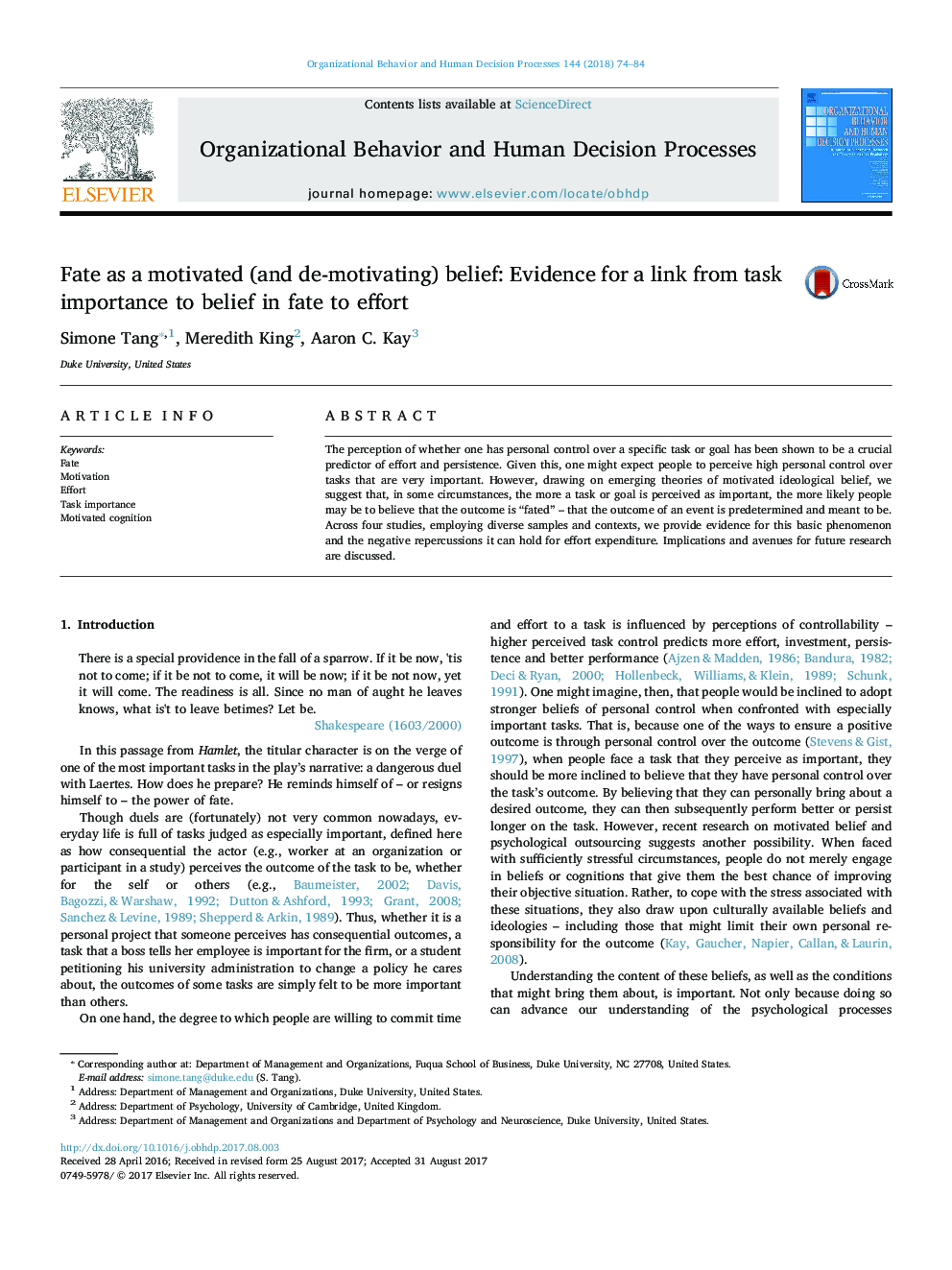| Article ID | Journal | Published Year | Pages | File Type |
|---|---|---|---|---|
| 7248044 | Organizational Behavior and Human Decision Processes | 2018 | 11 Pages |
Abstract
The perception of whether one has personal control over a specific task or goal has been shown to be a crucial predictor of effort and persistence. Given this, one might expect people to perceive high personal control over tasks that are very important. However, drawing on emerging theories of motivated ideological belief, we suggest that, in some circumstances, the more a task or goal is perceived as important, the more likely people may be to believe that the outcome is “fated” - that the outcome of an event is predetermined and meant to be. Across four studies, employing diverse samples and contexts, we provide evidence for this basic phenomenon and the negative repercussions it can hold for effort expenditure. Implications and avenues for future research are discussed.
Related Topics
Social Sciences and Humanities
Business, Management and Accounting
Marketing
Authors
Simone Tang, Meredith King, Aaron C. Kay,
